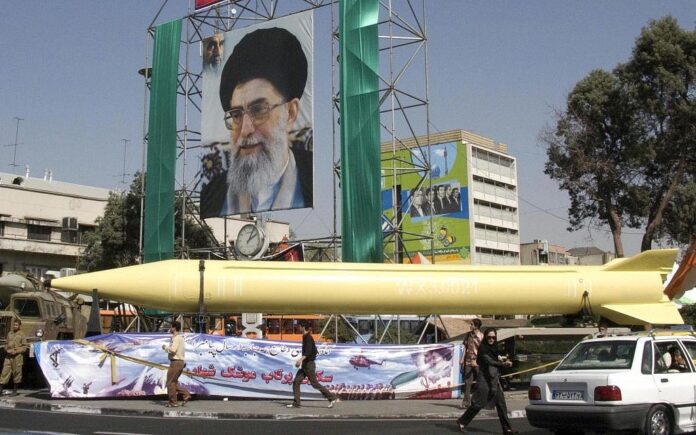The International Atomic Energy Agency (IAEA) has released alarming findings, revealing that Iran has significantly increased its nuclear stockpile by 17%. According to the report, Iran now possesses approximately 142 kilograms of near weapons-grade uranium, a staggering thirty times beyond the limits stipulated in the 2015 nuclear agreement.
The revelation has sparked widespread concern among international observers, particularly in light of assessments by the Institute for Science and International Security. The institute estimates that Iran could potentially convert enough uranium for a nuclear bomb within a mere week, heightening fears of nuclear proliferation and regional instability.
These developments underscore the escalating tensions surrounding Iran’s nuclear program and its implications for global security. As diplomatic efforts continue to address Iran’s nuclear ambitions, the latest findings serve as a stark reminder of the urgency to prevent further escalation and uphold international non-proliferation agreements.
Understanding Nuclear Stockpiles: Implications for Global Security
Nuclear stockpiles represent one of the most significant and contentious aspects of international security. These stockpiles consist of weapons-grade uranium and plutonium, the essential components for nuclear weapons. The possession and proliferation of nuclear stockpiles raise complex geopolitical challenges and pose profound risks to global stability.
At the heart of the nuclear stockpile debate lies the concept of deterrence. Nuclear-armed states argue that maintaining a robust stockpile acts as a deterrent against potential adversaries, preventing conflict through the threat of mutually assured destruction. However, critics contend that the existence of large nuclear arsenals only increases the likelihood of catastrophic warfare and escalates tensions between nations.
The size and composition of nuclear stockpiles vary widely among nuclear-armed states. The United States and Russia possess the largest arsenals, comprising thousands of warheads each. Other nuclear powers, such as China, France, the United Kingdom, India, Pakistan, and North Korea, also maintain significant stockpiles, albeit on a smaller scale.
Efforts to reduce nuclear stockpiles and prevent proliferation have been ongoing for decades. Treaties such as the Treaty on the Non-Proliferation of Nuclear Weapons (NPT) and bilateral agreements like the Strategic Arms Reduction Treaty (START) aim to limit the size and scope of nuclear arsenals while promoting disarmament and non-proliferation efforts.
Despite these efforts, challenges persist. The emergence of rogue states and non-state actors seeking to acquire nuclear weapons underscores the continued importance of robust arms control measures and international cooperation. Additionally, advancements in nuclear technology and the potential for cyberattacks on nuclear infrastructure add layers of complexity to the nuclear security landscape.
As the world grapples with evolving threats and geopolitical dynamics, the issue of nuclear stockpiles remains a pressing concern. Effective management of nuclear arsenals, coupled with diplomatic efforts to promote disarmament and prevent proliferation, is essential to safeguarding global security and averting the catastrophic consequences of nuclear conflict.



